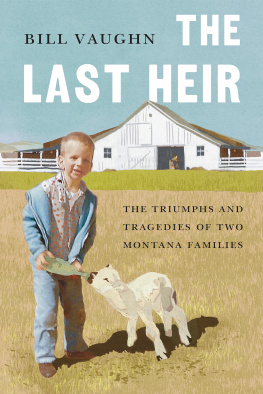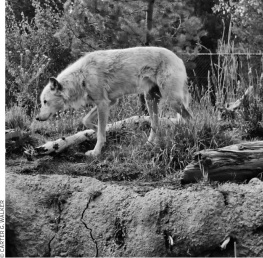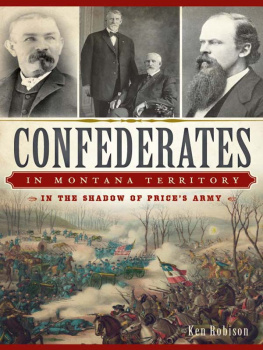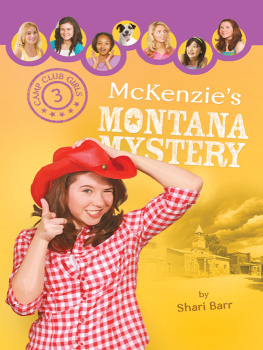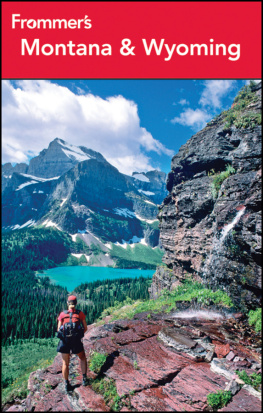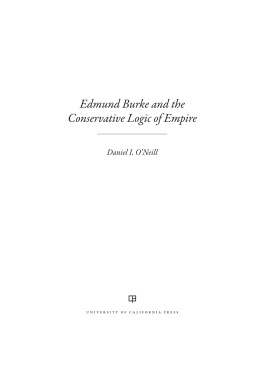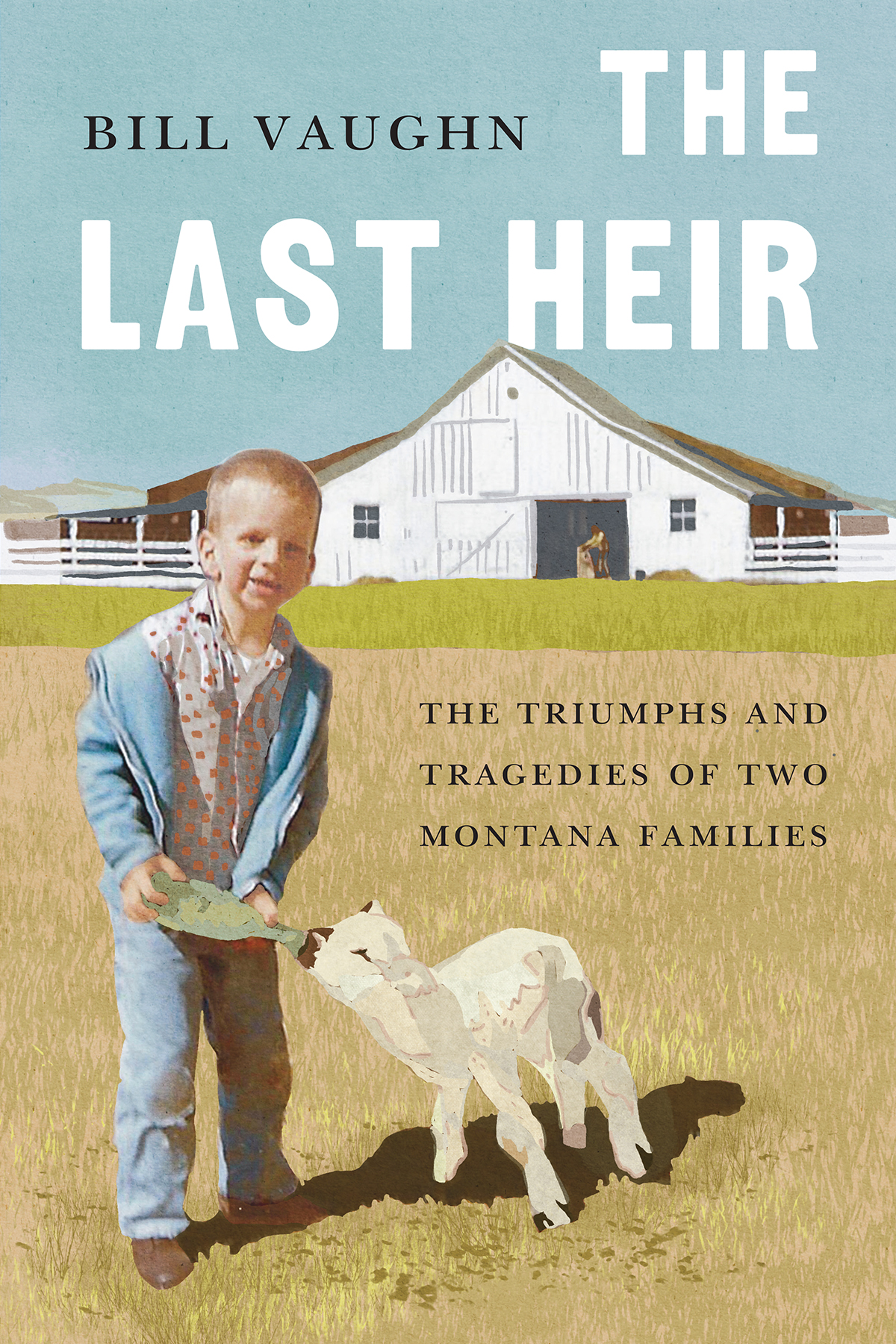
A dishy, encyclopedic romp through twentieth-century Montana history. I was amazed that a book containing so many disparate nuggets could hew to a narrative structure that enticed me to read it so quickly.
John Clayton, author of Natural Rivals: John Muir, Gifford Pinchot, and the Creation of Americas Public Lands

The Last Heir
The Triumphs and Tragedies of Two Montana Families
Bill Vaughn
University of Nebraska Press | Lincoln
2022 by Bill Vaughn
Cover designed by University of Nebraska Press; cover image Amy Hana Huffman.
Author photo by Kitty Herrin.
All rights reserved
Library of Congress Control Number: 2021040740
The publisher does not have any control over and does not assume any responsibility for author or third-party websites or their content.
For the reporters
Two households, both alike in dignity.
Romeo and Juliet
Contents
The only thing the Herrins and the Burkes had in common was their Irish ancestry. Opposites in most ways, the families nevertheless personified two common threads in the history of Western America. As the owner of one of Montanas premier early twentieth-century stock-raising operationswhat would later be famously named the Oxbow Ranch on the west shore of Holter LakeHolly Herrin ruled with frontier violence and legal vehemence over a mammoth fiefdom of land, water, cattle, and sheep. George Burke was a real estate agent, a deputy sheriff, a game warden and a civil engineer in a family of professionalsnewspaper editors, lawyers, and politicians, including a U.S. senator. The country-mouse Herrins voted Republican; the city-mouse Burkes Democratic. Both patriarchs, fighting with their fists and their lawyers, were active players in the far-reaching dramas and ludicrous comedies that shaped modern Montana.
While I learned much about the Herrins and the Burkes from newspaper articles, books, deeds, wills, pamphlets, and other public records such as court judgments, I drew essential primary material for these intertwined stories from two people. The first is my wife, Kitty Herrinthe great-granddaughter of Holly Herrin and the granddaughter of George Burke. And the second is her mother, Molly Catherine Burke Herrin. As a college-educated journalist, Molly felt compelled to warehouse most every document that came into her possession, from letters and photographs to canceled checks, tax records, journals, transcripts, union dues receipts, and pay stubs.
What follows from this research is the twelve-decade story of two clans whose fortunes would finally be married together. First up are the Burkes, followed by the Herrins. The narrative concludes with the fate of all empires, whether with a bang or, in the case of this one, with a whimper.
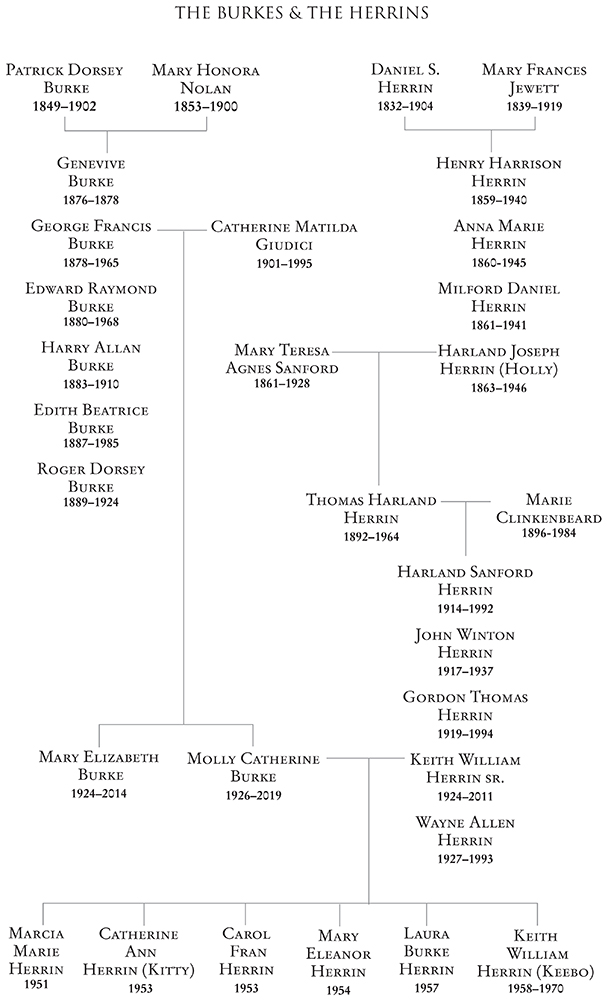
Burke and Herrin family trees. Courtesy of the Molly Burke Herrin Estate.
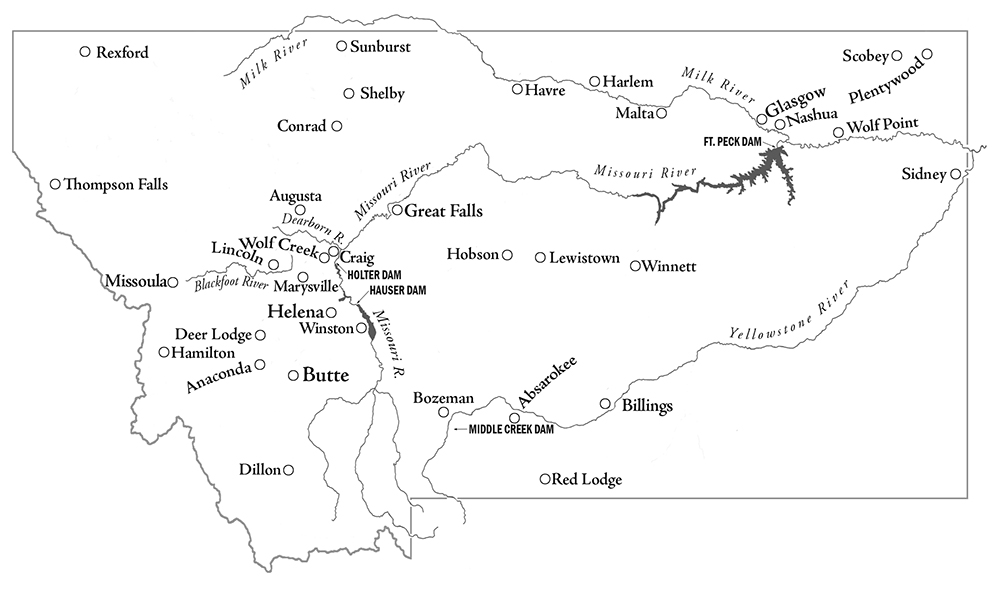
Montana. Created by author.
Without a Trace
On a frigid afternoon in February 1969 Molly Herrin and her ten-year-old son left the three-story brick slab housing the Montana School for the Deaf and Blind in Great Falls and walked toward the familys lumbering blue Travelall parked in the lot. As he tapped the sidewalk with his white cane she chatted with him about the nice lady who had just taught him this new skill. Driving into the setting sun, they crossed the Missouri on the Tenth Avenue South bridge and headed through West Great Falls toward Interstate 15, which wound upstream along the big frozen river to the Herrin Hereford Ranch ninety miles south in the Helena Valley. Settling down beside her in the front seat, Keith Jr.his sisters called him Keeboput on his earphones and turned the dial on his transistor radio until he found KUDI , the only rock and roll station in town. He loved the Beatles and the Rolling Stones and had lately developed a taste for Sly and the Family Stone, whose single Everyday People was topping the charts. When they entered the volcanic palisades of Wolf Creek Canyon and the station faded to static, he reached for his social studies book. In the dark he read the raised dots with the fingers of both hands.
Everyone on the ranch knew that the doctors had run out of options. But the painful subject of Keebos health was not something his large extended family talked about much. The conversations tended instead toward fences and farm equipment and the weather. Molly and Keith Sr. were trying to work through problems in their marriage, so entrenched that they had sought counseling, a fact they kept secret because therapy wasnt something engaged in by Montana ranchers. Keebos aunt and uncle, who lived on their adjoining ranch next to the Herrin place, had their hands full running both spreads, especially after Keith Sr. had become distracted by matters other than hay and cattle. Keebos grandmother, a widow living in yet another ranch house, was busy with her garden club and her singing and volunteer work with the Daughters of the Nile. And his sisters were caught up in the social whirl that preoccupies popular teenage girls.
Walking to her house, Molly could see her breath in the ten-degree air. Inside, the girls were gathered around the dining room table. Keebo found his way to a chair and sat down.
Whats going on? Molly asked.
Marcia, a senior at Helena High who was planning to study journalism in college, never minced words. Dad left. Hes not coming back.
His rifles are gone, Carol said. She was Mollys third oldest, and Kittys mirror twin. So are all his clothes. And his saddles.
Although people in the community would be outraged when they learned that Keith had abandoned his family to run off with a married womanwho also betrayed her husband and childrenMolly was neither surprised nor shocked. She had sensed for some time that the day would come when she and Keith would part ways. But she had hoped her husband would somehow muster the courage to stay on in this lifeless marriage, if for nothing else, the sake of his ailing son. The immediate problem caused by Keiths desertion wasnt the emotional pain her children would suffer or what the neighbors thought. It was money. She realized that, suddenly, she had been stripped of any financial stake in the ranch where she had lived and labored for two decades and raised a family. Without a dime in savings, plus mounting medical bills and no promise of an income, how in the world would she provide for herself, her six children, and their menagerie of cats, dogs, sheep, steers, and horses? And if her brother-in-law decided to evict them, where would they live?
In the morning, Mollys panic had turned to resolve. Cradling a third cup of coffee after the kids went off to school, she considered her options. In fact, like her hard-working parents, she had always found a way to earn a living. And she vowed that she would find a way to do so again.
First-Generation Americans
Mollys father, George Francis Burke, was born in Milwaukee in 1878, the son of an Irish immigrant named Patrick Dorsey Burke. Patrick was born in County Limerick on the banks of the River Shannon on St. Patricks Day in 1849 (the Irish pronounce the name
Next page
